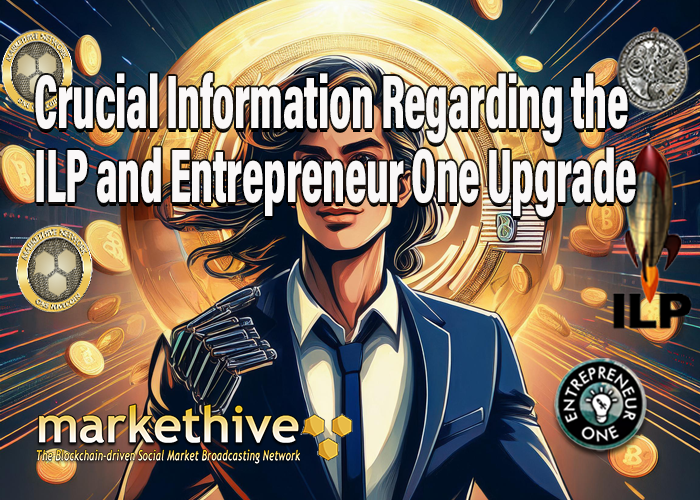


HashKey secures VASP license in Ireland under MiCA regulations
HashKey Europe has entered Ireland following its approval for a VASP license under MiCA regulations, enabling various crypto services.
HashKey Europe, a subsidiary of Hong Kong-based cryptocurrency exchange HashKey, has received approval for a virtual asset service provider (VASP) license from the Central Bank of Ireland.
On Jan. 7, the HashKey Group announced its market expansion through a VASP registration approval from Ireland’s central bank.
All crypto service providers in Ireland are required to register with the central bank for Anti-Money Laundering (AML) and Countering the Financing of Terrorism (CFT) measures under the European Union’s Fifth Anti-Money Laundering Directive (AMLD5).
All firms operating under the previous VASP regime will “continue to operate for up to 12 months or until their CASP authorization is granted or refused, whichever is sooner.”
Derville Rowland, the deputy governor at the Central Bank of Ireland, previously said that MiCA regulations give local institutions the guidelines to “build financial inclusivity” and “democratize finance.” She added:
“Innovation has brought in new entrants, new products and new ways of serving customers and the economy. As a result, technological innovation continues to be a focus for the central bank.” Read More
New Solana proposal aims to fix scalability issues with ‘lattice’ system
Solana developers proposed a new hashing system that would change how the Solana network verifies and traces user accounts in a bid to fix scalability issues stemming from mass usage.
In a Jan. 6 proposal titled SIMD-215, developers introduced a “lattice-based homomorphic hashing function” that alters the way the blockchain tracks user accounts.
“The main goal is to scale Solana to billions of accounts and compute a ‘hash of all accounts’ in practical time and space,” the proposal reads.
Currently, the Solana network needs to recalculate the “state” of all accounts on a regular basis, which means that as the number of users increases, the process of recalculating the state becomes more arduous.
Solana Labs co-founder Anatoly Yakovenko discussed this issue — dubbed the “state growth problem” — in a May 11 post to X last year.
“The problem comes down to this simple thing, new account creation has to actually create new accounts. Which means that a new account has to prove that it is new somehow,” wrote Yakovenko. Read More
Hyperliquid must draw developers or risk unraveling — VanEck
The layer-1 chain needs more than a successful perpetuals exchange to justify the HYPE token’s lofty valuation, according to the asset manager.
Layer-1 blockchain network Hyperliquid needs to bootstrap a robust developer community to sustain its native token’s roughly $25 billion market capitalization, asset manager VanEck said in a Jan. 6 research note.
Hyperliquid has become one of the most valuable blockchains since launching its HYPE token in a November airdrop. However, Hyperliquid’s nascent smart contract platform has “yet to attract much of a developer community,” VanEck said.
“If Hyperliquid is unable to meet the growth expectations of its community, the prisoner’s dilemma facing many newly rich $HYPE holders may quickly unravel,” the asset manager wrote.
“Once again, we can see another Icarian tale about crypto hubris.” Read More
A new era of borrowing: Self-repaying loans bring interest-free debts to DeFi
Superseed, a DeFi protocol with self-repaying loans, inches closer to its mainnet launch and token generation event.
Decentralized finance (DeFi) comes with the promise of an open, accessible financial system. Yet many protocols face a common lingering question: How to ensure every participant is included in the value created? Borrowers, for instance, may discover that interest and complex strategies eat away at their gains, while tokenholders might wonder whether their long-term interests truly align with broader network goals.
Misaligned incentives between users and protocols, reliance on unsustainable models and burdensome loan systems are persistent problems. For DeFi to fulfill its vision, these barriers must be dismantled with solutions that prioritize fairness and practicality.
The demand for equitable structures prompted certain projects to explore new ways of distributing value. The search goes beyond short-term hype; it involves designing entire ecosystems that reward back the very contributors who help those ecosystems thrive.
A fresh approach to this challenge can be found in one particular project that rethinks how value flows within its ecosystem. By utilizing diverse streams of protocol fees and integrating a daily auction mechanism, the initiative strives to challenge the current paradigm of onchain borrowing while fostering transparency. Read More
Important Updates About The ILP and Entrepreneur One Upgrade

We are on the verge of the greatest economic renaissance globally, undoubtedly the most extraordinary in the history of the United States, and even overshadow the impact of the Industrial Revolution. At the forefront of this revolution is cryptocurrency, which holds the power to empower millions of individuals and integrate them into a secure, decentralized global economy. Cryptocurrency introduces extra protection for people and presents an opportunity to evade issues such as inflation, political uncertainty, and economic marginalization.
It is a “rebuilding” of the entire global economy, and Markethive is at the threshold of this economic resurgence, ready to launch after years of preparation, iterations, and Divine guidance. Cryptocurrency has paved the way for revolutionary platforms to counter many real-world problems across various sectors, with Markethive pioneering social, marketing, and digital broadcasting.
We are launching into what many are calling the greatest crypto revolution ever. This revolution marks the increasing realization of the actual economic and social potential of decentralized platforms, heralding autonomy, financial sovereignty, and wealth distribution in a dynamic crypto-enabled ecosystem. As more people recognize these potentials, the crypto market will experience unprecedented growth and innovation, creating a renaissance within Markethive. Read More
Ripple’s RLUSD stablecoin to list ‘imminently’ on more exchanges — Exec
Ripple president Monica Long expects its Ripple USD (RLUSD) stablecoin to be listed on major crypto exchanges “imminently.”
In a Jan. 7 interview with Bloomberg, Long confirmed that Ripple is actively pursuing additional exchange listings for RLUSD.
“We are continuing to expand distribution and availability of Ripple dollars on other exchanges. So I think you can expect to see more availability, more announcements coming soon… imminently,” Long said. She declined to provide specifics when asked about RLUSD listings on major platforms like Coinbase.
RLUSD is available on Bitso, MoonPay, CoinMina, Bullish, Mercado Bitcoin, B2C2, Keyrock, Archax, Independent Reserve and JST Digital, according to the Ripple website.
Ripple launched RLUSD on Dec. 17 as a stablecoin pegged 1:1 to the United States dollar. At the time of publication, the stablecoin boasted a market cap of $71.8 million, according to CoinGecko. Read More
How Hyperliquid’s insanely lucrative airdrop launch changed the game
Hyperliquid has been lauded for delivering the best and most lucrative airdrop launch in crypto history back in November, by excluding VCs and rigorously encouraging community involvement.
Still, experts caution that other projects trying to copy the decentralized exchange’s (DEX’s) launch strategy are unlikely to realize the same success.
Jae Sik Choi, an analyst at Greythorn Asset Management, told Cointelegraph the decision to exclude venture capitalists and hone in on community involvement was a boon for the price action of HYPE post-airdrop and helped create the cult following the perpetuals DEX now enjoys on social media.
“One of the main things they got straight was creating short-term artificial demand by not having VCs — this forces them [VCs] to buy the moment the token comes to market along with everyone else,” Choi said.
“They literally came back to what crypto was originally, which is fair launches. If the product is decent and the launch is fair, it’s almost guaranteed to pump no matter what.”
Choi added that one of the lesser-known contributors to HYPE’s price-action was the HYPE Assistance Fund, a Hyperliquid entity dedicated to buying back HYPE on the open market. Read More
Web 4.0 – Blockchain and AI Will Usher In a More Humane and User-Friendly Web
‘Web4’ aims to empower the user by relieving Web 2.0’s cognitive overload and mental burdens that leave a negative emotional impression.
Web 4.0 represents the natural progression of the internet – a developer-led revolution combining blockchain technology and smart contracts with powerful AI and AGI (artificial general intelligence) to improve user interactions with digital services.
With blockchain’s ability to facilitate secure data ownership and communication alongside diverse and rapidly advancing AI capabilities, Web 4.0 will free users from routine tasks while minimizing the stress factors associated with Web 2.0.
At the heart of this transformation is a global AI layer as the basis for Web 4.0, which will operate as a truly decentralized and open-source ecosystem where users have convenient access to a range of services and applications, creating a single integrated solution.
Access to Web 4.0 platforms, services or applications hinges on adhering to the ‘three seconds or three clicks’ principle, ensuring any access to information or a task receives maximum efficiency.
Thanks to optimized AI-powered interfaces capable of anticipating a user’s needs, this principle ensures all services and applications within the Web 4.0 ecosystem are delivered fast without information overload. Read More
Bhutan’s Special Administrative Region to Adopt Bitcoin, Ethereum in Strategic Reserves
A newly designated Special Administrative Region in Bhutan announced plans on Wednesday to formally adopt digital assets, including Bitcoin, Ethereum, and Binance’s BNB token, as part of its strategic reserves.
Known as the Gelephu Mindfulness City, the region is attempting to establish an urban environment in the southern plains of Bhutan centered around “mindfulness, sustainability, and innovation,” according to a statement on Wednesday.
GMC’s initiative seeks to institutionalize the inclusion of digital assets at a regional level. The move builds on Bhutan’s growing role in crypto, where the government already holds significant Bitcoin reserves.
Since 2019, Bhutan’s state investment arm, Druk Holding & Investments (DHI), has mined over 13,000 Bitcoin, valued at approximately $750 million.
Bitcoin Is Flying High—These Countries Are Considering a National Reserve
Some countries are mulling a national Bitcoin reserve amid a historic market run-up that has pushed the world’s largest cryptocurrency to new heights in recent weeks, with BTC topping $100,000 for the first time earlier this month. United States President-elect Donald Trump and his allies have repeatedly thrown their support behind a bill to stock the Federal Reserve with the asset, and will soon be in position to potentially make that a reality. Read More
Disclaimer: These articles are provided for informational purposes only. They are not offered or intended to be used as legal, tax, investment, financial, or any other advice.
Featured Image Source: Pixabay